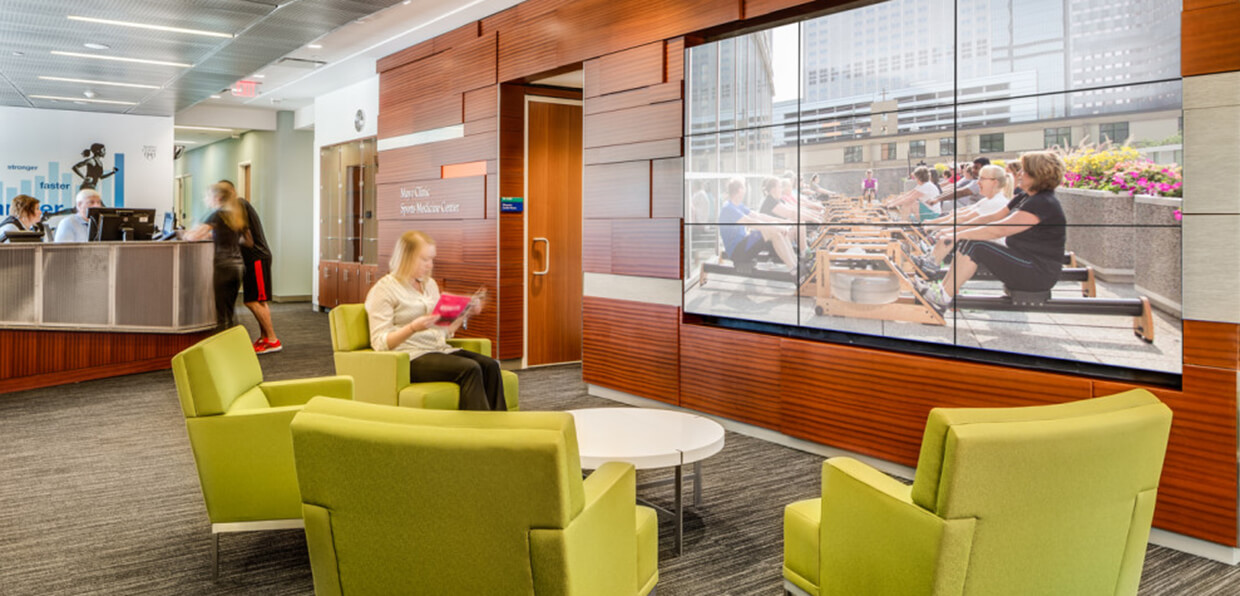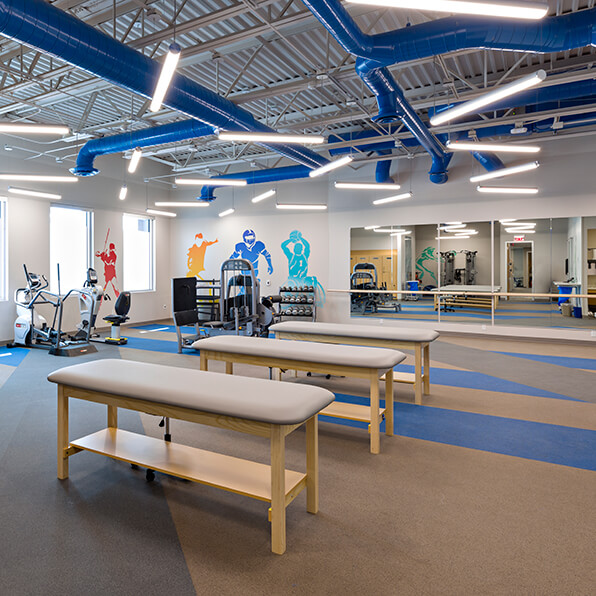Knee cartilage is tissue that lines the ends of the bones in the knee joint, and its job is to make the knee bones glide over each other smoothly when we bend and straighten the knee. Due to acute injury or general wear and tear and arthritis, knee cartilage defects can cause pain, swelling, loss of motion, and overall sideline you from life.
No matter the cause, because it doesn’t have its own blood supply and therefore can’t heal itself, cartilage is challenging to treat. Traditionally, fixing a cartilage defect surgically included the microfracture technique which proves problematic in many regards. That is why Mayo Clinic orthopedic surgeons began researching and pioneering regenerative medicine cartilage restoration techniques, like MACI (matrix-associated autologous chondrocyte implantation), which uses the body’s own cells to repair cartilage defects in the knee. While its outcomes are positive and effective, the process involves two surgeries, which can be weeks or months apart.
So, when Aaron Krych, M.D., orthopedic surgeon, co-director, Mayo Clinic Orthopedics and Sports Medicine, met Daniel Saris, M.D., Ph.D., orthopedic surgeon, Mayo Clinic Orthopedics and Sports Medicine, on a visiting tour of Europe, they began collaborating and started to develop a one-stage cartilage regeneration technique using stem cells. “We wanted to improve this [two stage] technique because during the waiting period, the patient’s life is on hold, costs increase and the logistics can be complex,” Dr. Saris says. “We’re trying to bring it down to one stage in order to improve and shorten the time for an athlete’s recovery,” adds Dr. Krych. This technique is called RECLAIM (REcycled CartiLage Auto/Allo Implantation) and is currently in clinical trials approved under the FDA.
“We’ve created a one-step technology,” Dr. Krych explains, “where in the same surgery, we take out the cartilage as a biopsy, send it to our lab, mix it with stem cells in a very specific ratio, then re-implant that into the knee.” In 2018, Dr. Krych received a Regenerative Medicine Research Grant to research its safety and feasibility, assess improvement in pain and function, and monitor safety and adverse events. As such, Mayo is one of only a few places to offer this unique regenerative medicine approach to knee cartilage repair to clinical trial participants.
How it works
During debridement, the surgeon arthroscopically cleans out and removes damaged tissue and cells from the knee. The surgeon takes some of those cells, digests them down to the micron level, and adds allogenic stem cells from Mayo’s donor bank. These stem cells come from healthy adults and stimulate cartilage regeneration in a faster manner, helping the cartilage grow. After 45 minutes to an hour, those cells are then replanted into the patient’s knee. “Within one surgery, Dr. Saris says,” we can put these cells together to fix the cartilage defect in the patient and have them function again.”
Results
Overall, clinical trial outcomes have shown improvements and are promising. “Recovery times have been less, patient results have been really fantastic, but overall, I think having one recovery and one surgery is just a much easier journey for patients,” says Dr. Krych. Dr. Saris performed the RECLAIM technique in Europe prior to coming the U.S., (Dr. Saris or Krych – confirm this is accurate?) and those results, which are now around four years out, have shown to be comparable to, or better than, other cell therapies. “These patients,” he says, “achieved normal post-surgery function about six months quicker” than those who did not have the RECLAIM procedure.
One other significant finding comes from the first trial of 35 patients at Mayo. DNA analysis used to test both for the patient’s own cartilage cells and the allogenic stem cells at one-year post-procedure show the final product to be only the patient’s own cells. “This was some of the initial proof,” Dr. Krych says, “that stem cells provide some of the stimulation and improve what the body’s own cells can do.”
Recovery
Patients typically return home the day of the minimally invasive surgery and can go back to normal activities within three to four months. Full return to sports takes between nine and 12 months, as this time is needed for the cartilage to grow and heal, and muscle control regained.
Our surgeons work together with physical therapists, athletic trainers, and other sports medicine experts to create, and then guide you on, your rehab and recovery plan.
Eligibility
To be considered for RECLAIM, a patient must be between the age of 18-50, with relatively fresh cartilage damage in one area only that is nonarthritic. Other criteria may include type and stage of injury, previous treatments, or health concerns.
Without treatment, damaged cartilage can stay the same or get worse over time; as such, it’s crucial to have an evaluation and diagnosis so you can begin treatment as soon as possible. That is why Mayo has a dedicated Knee Cartilage Clinic. Here, our multidisciplinary team of world-class sports medicine experts work together to provide care for all stages of knee cartilage repair, from diagnosis to rehab and recovery.
If you are interested in discussing possible eligibility for the RECLAIM procedure or finding out more, contact the Knee Cartilage Specialty Clinic in Rochester, MN or Minneapolis, MN.






